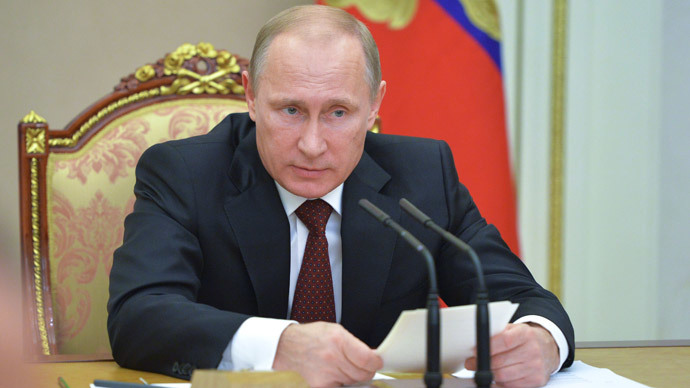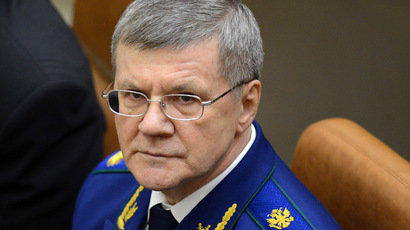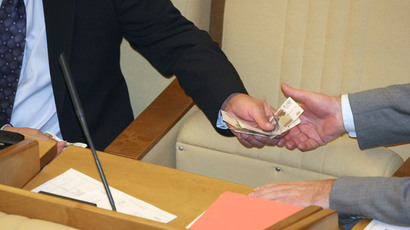Corruption rethink: Putin bill features more targeted approach to penalties

Russian President Vladimir Putin has drafted a new anti-corruption bill, proposing correctional labor be used as punishment and a decrease in the amount of fines for minor offences.
The new motion aims to perfect the national anti-corruption legislation, reads the explanatory note published on the Kremlin website along with the draft.
Currently there is little disincentive for offenders to commit more serious crimes, since the punishment available law is the same as for lesser ones.
The note also claims that the current practice of variable fines, according to the amount of damage inflicted to the state, can create conditions whereby those found guilty are unable to pay. This violates the legal principle of inevitability of punishment.
The Russian Criminal Code sets the penalty for bribery as fines between 25 and 100 times the size of the bribe – depending on the position held by the guilty party and other conditions. Putin’s bill halves this ratio and also introduces a fixed fine of up to 1 million rubles (about $20,000). The new draft extends the period of voluntary repayment of fines from 30 to 60 days and also allows the court to impound a convicted person’s property to secure the repayment.
Proportional fines for bribery were introduced in Russia in 2011 on the initiative of then-President Dmitry Medvedev as part of a pro-business liberalization of laws. However, after returning to the presidency and analyzing the situation, Putin criticized the move as ineffective.
In the first half of 2013, Russian courts ordered those convicted of corruption to repay 20 billion rubles in fines, but bailiffs have managed to collect only one percent of this sum. In mid-2013, Putin ordered various federal ministries to draft suggestions and plans to tackle the situation.
In spring 2014, Russian Prosecutor-General Yury Chaika proposed a bill making a prison term the sole punishment for anyone convicted of corruption, saying that compensatory punishment or fines were not a deterrent – one of the key points that provide the rule of law.
The head of the State Duma Committee for Countering Corruption, MP Irina Yarovaya, said in press comments that the motion could be seen as president’s assessment of the current application of the anti-corruption laws. She also noted that the new suggestions would make the punishment fit the crime, be tailored to each case and be unavoidable for all – a trilateral improvement.
However, the head of the National Anti-Corruption Committee NGO, Kirill Kabanov, told Kommersant daily that the new bill was not without flaws. According to the activist, the 2011 liberalization was put in place for minor government-employed bribe-takers such as schoolteachers or doctors, but after the law was introduced, it covered only bribes taken by ‘officials’.
“The current act cannot be applied to common teachers or doctors and neither can the new draft. This means it can only lead to some state officials thinking that they can take bribes if these bribes are small,” Kabanov said.















